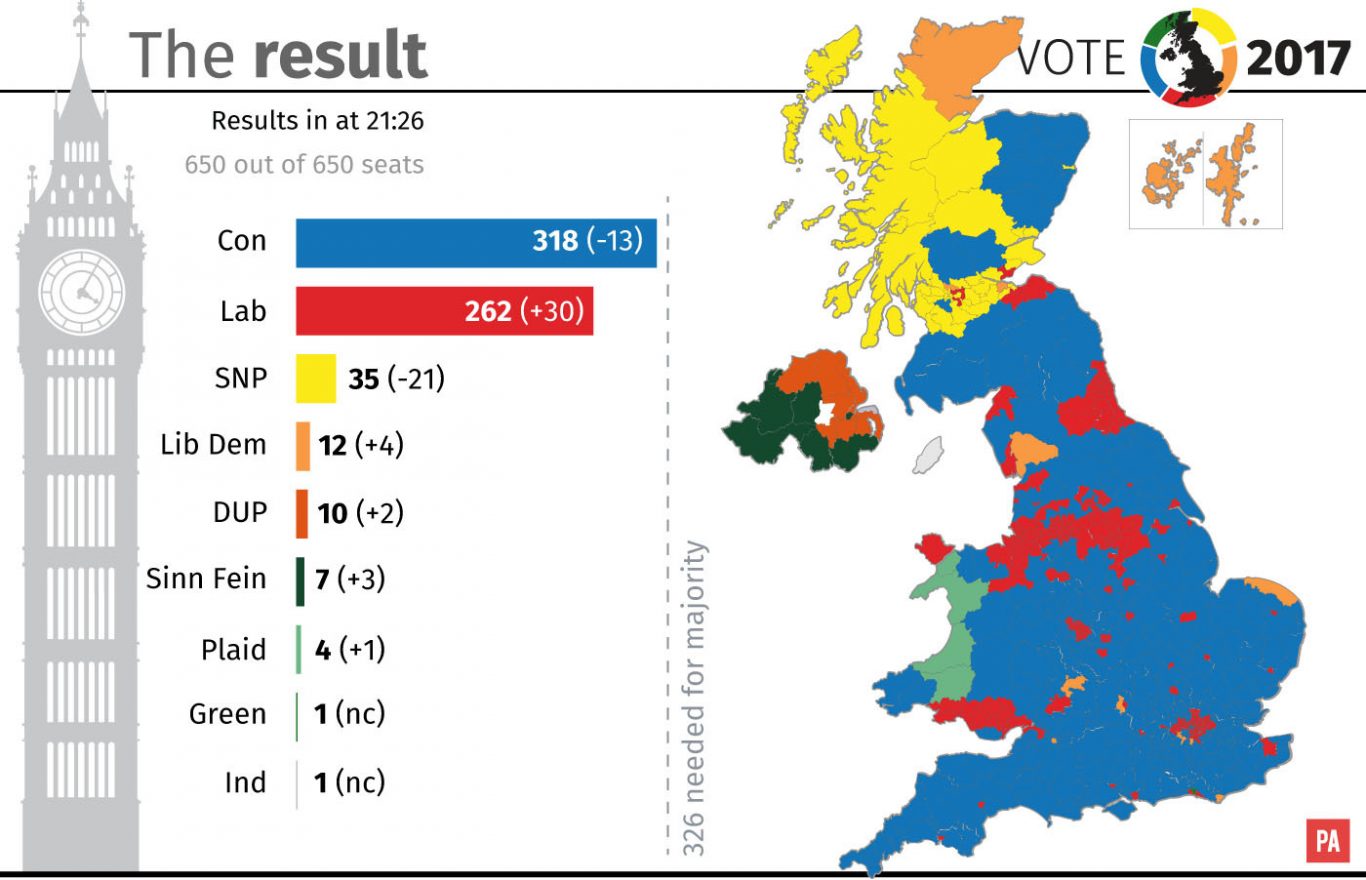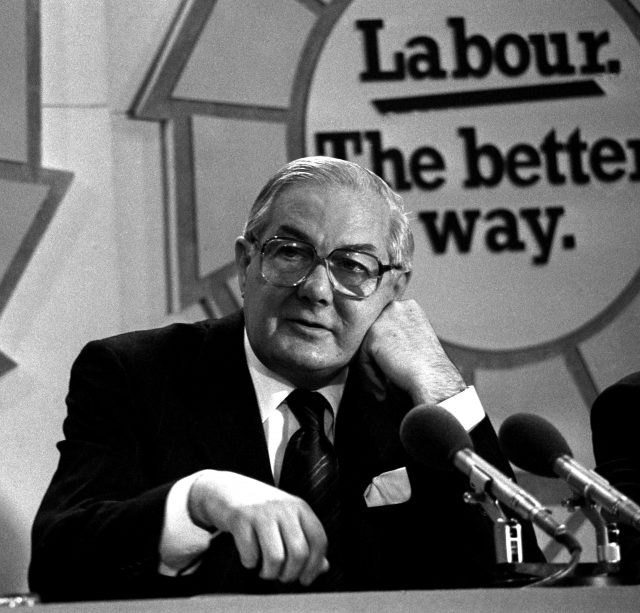Q&A: What you need to know about confidence and supply deals
The Conservative Party need the support of at least one other party to pass key legislation in Parliament.

Prime Minister Theresa May and Democratic Unionist Party leader Arlene Foster are holding discussions as they look to strike a deal to prop up a minority Conservative government.
The Conservatives won 318 seats in last week’s election, eight short of a majority, and therefore need the support of at least one other party to pass key legislation in Parliament.

But unlike the Conservative-Liberal Democrat coalition in 2010, where the parties agreed on a full legislative agenda with representatives from both in ministerial offices across government, the deal between the Tories and the DUP is more likely to be a so-called “confidence and supply agreement”.
Here are some questions and answers about the potential deal.
A minority party has an agreement with another party or parties to ensure it wins votes of confidence – generally considered on the Queen’s Speech and on the Budget. It can keep a government up and running but still leads to day-to-day instability as each “normal” vote is held against the backdrop of the governing party being a minority.
The “confidence” is a reference to backing on votes of no confidence while “supply” refers to backing on bills required for the Government to receive money to carry out its agenda.

The Lib-Lab pact from 1977 allowed Labour prime minister James Callaghan to remain in office after a by-election defeat saw the party lose its majority. The Labour Party accepted a number of Liberal policies in exchange for support in motions of no confidence, with the deal lasting 18 months.
It will allow the party to continue to govern without having to give up too much of their manifesto or Cabinet posts, which would be the case in a formal coalition.
The support of the 10 DUP MPs will come at a price – and could allow the party to see parts of its manifesto turned into legislation.
Yes, the National Party in New Zealand fell two seats short of a majority at the last election in September 2014 and struck a confidence and supply arrangement with the Maori party to run the country as a minority government.





